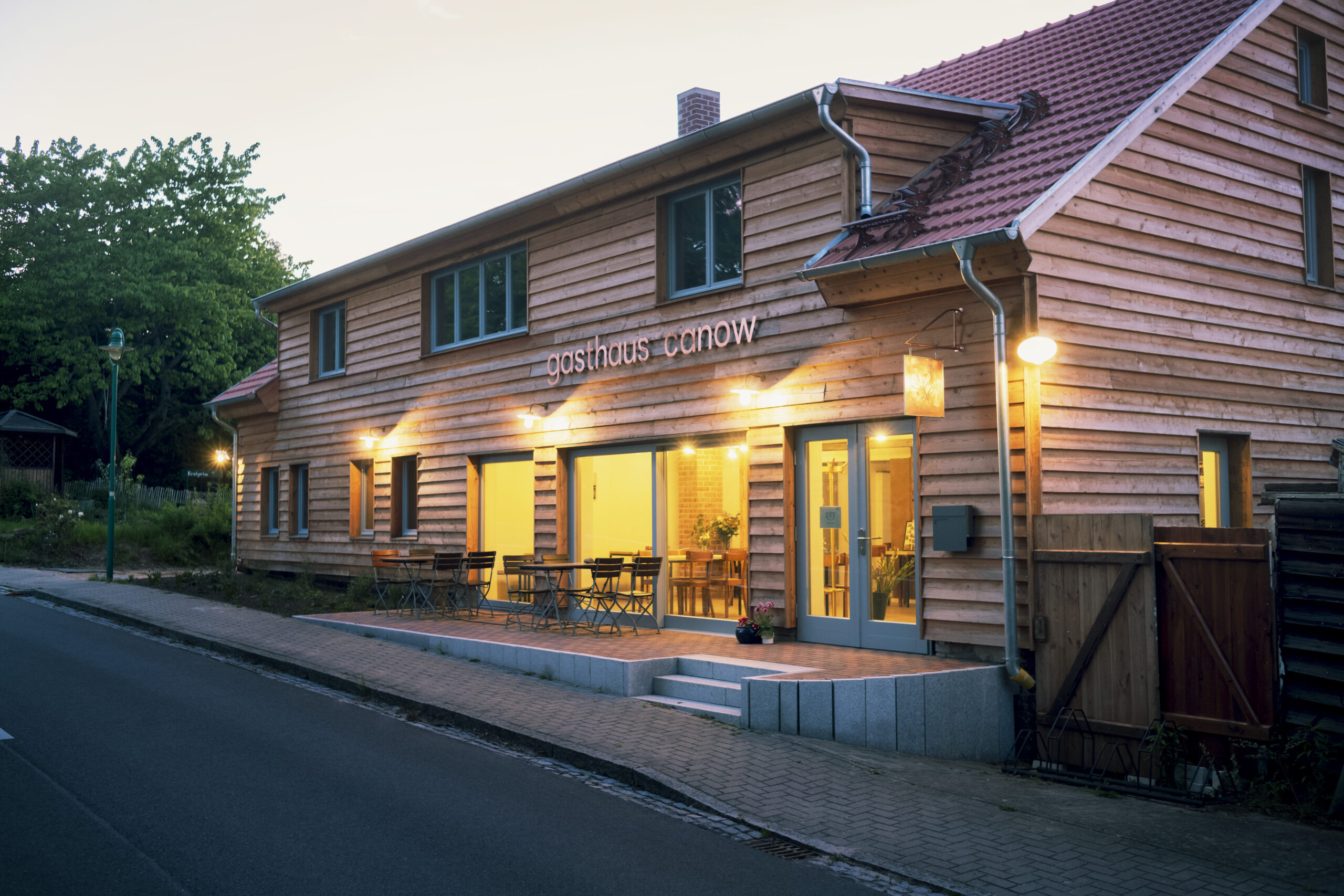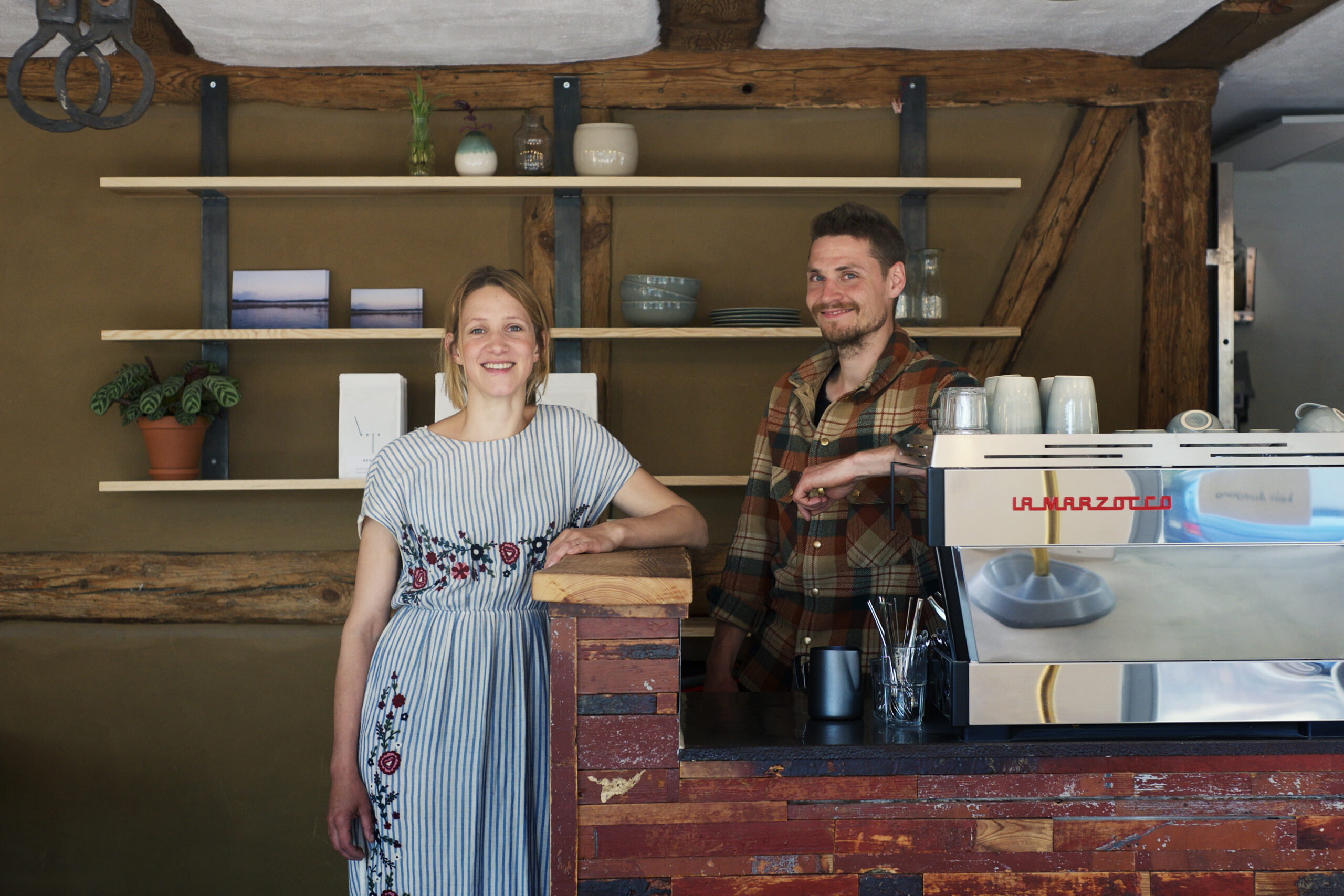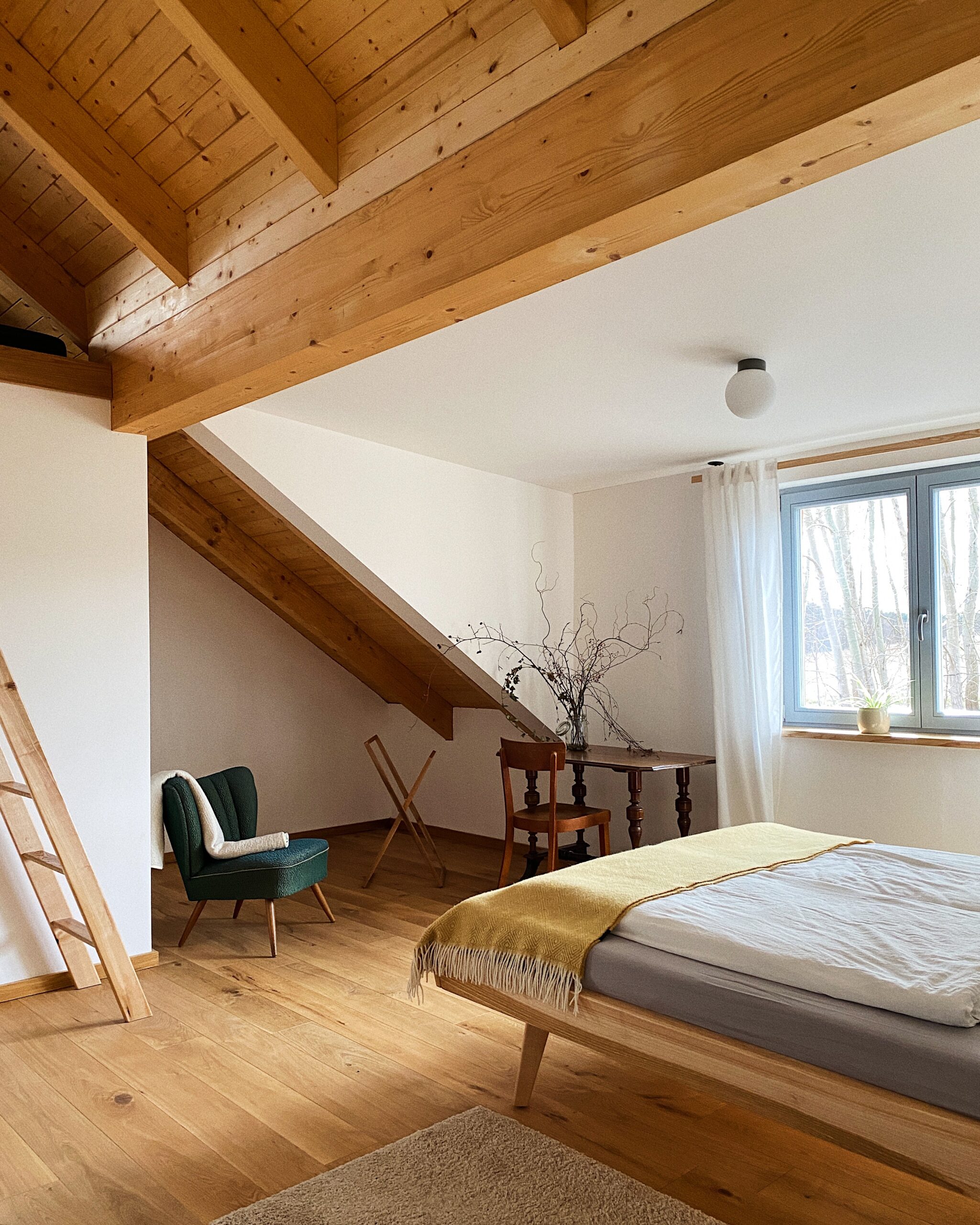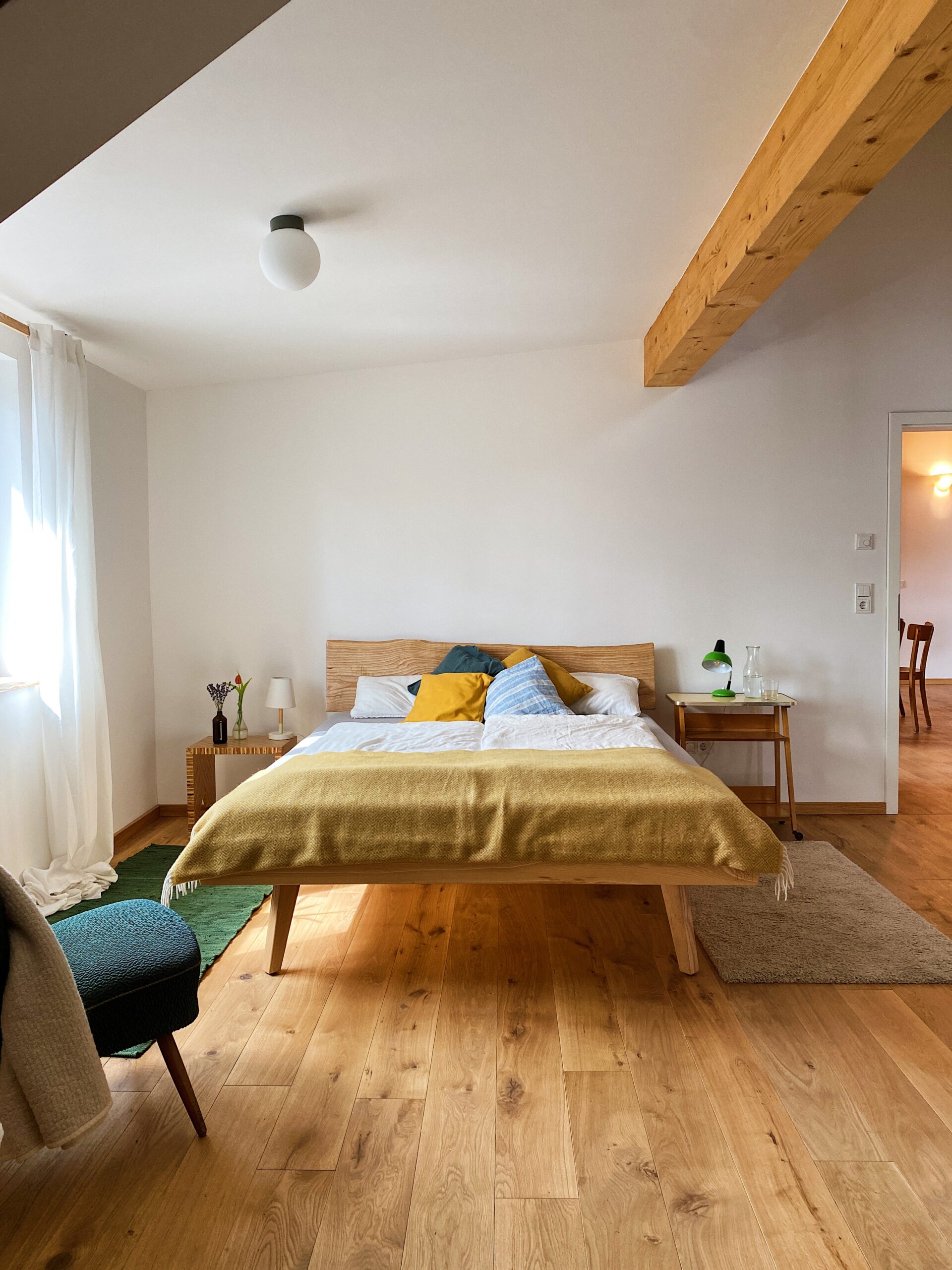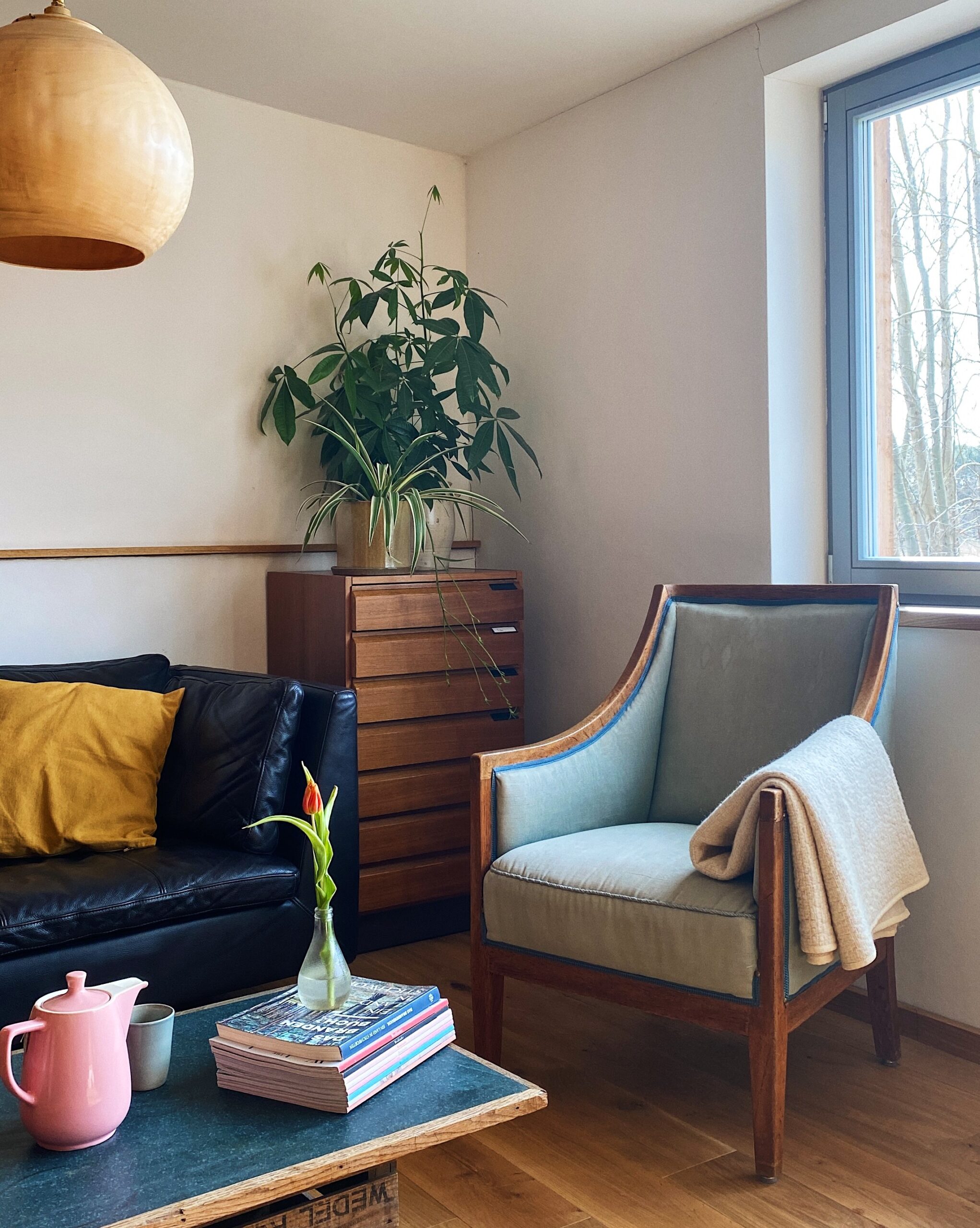Gasthaus Canow
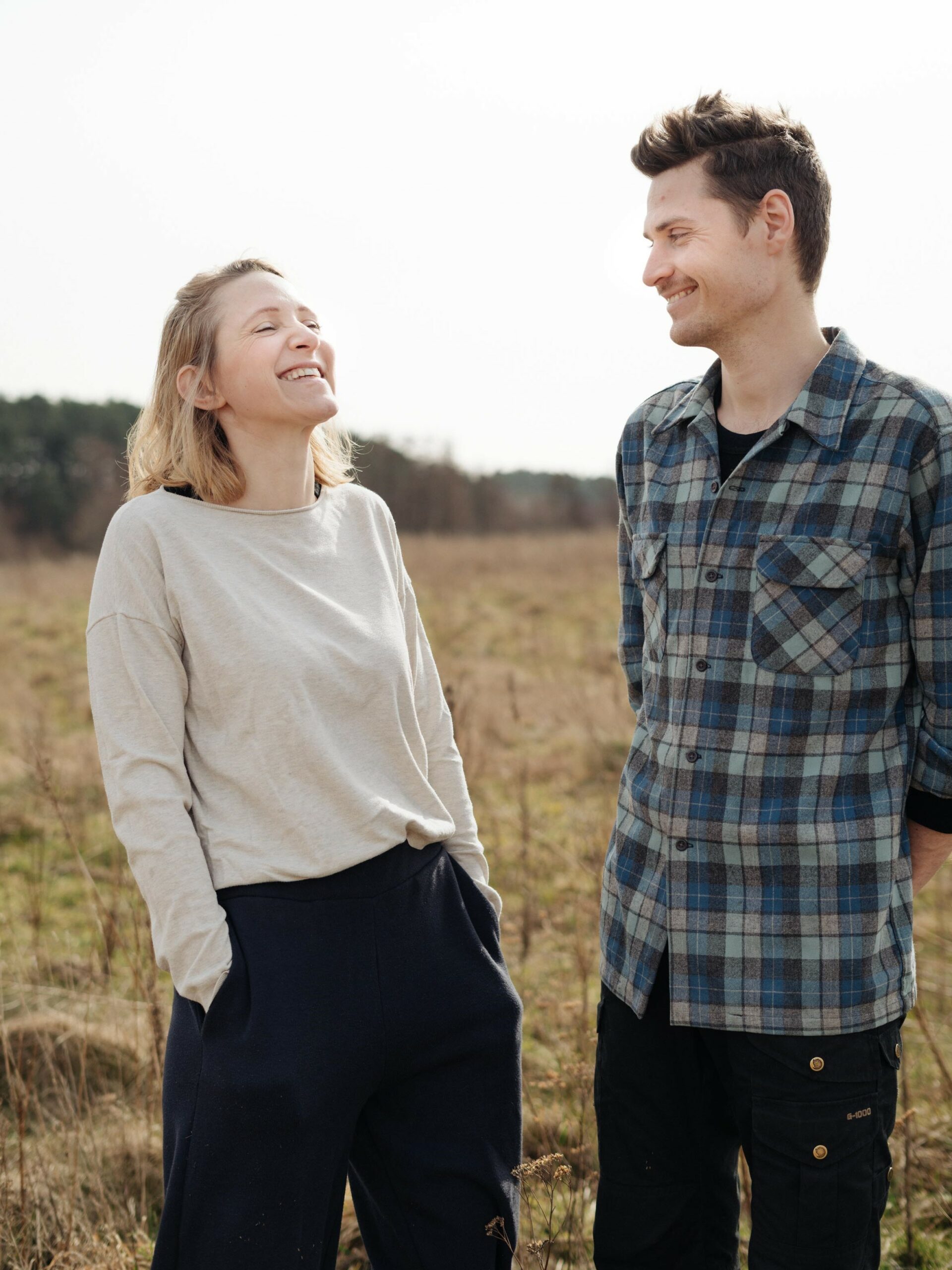
Dear Lea, dear Auriel, you run the Gasthaus Canow together in a former wheelwright’s workshop south of the Müritz on the border to Brandenburg. How did this project get started?
It had been clear to both of us for some time that we wanted to start our own business together. A place that reflects our values and our sense of gastronomy and being hosts. We went on many tours through the Berlin area and then fortunately came across the old house through David and Viola from Erdhof Seewalde. And then we thought about how our ideas could concretely become reality in this place, wrote a concept and business plan and then we started.
You made the conscious decision to move from Berlin to the countryside. What charm does the region offer and what makes you special as a guesthouse?
On the one hand, the region around us is totally beautiful because of the landscape. There are endless lakes and forests, grasslands and fields. And of course it’s not so densely populated. That means there’s plenty of room to relax. But also a lot of space for new things to develop. And that’s exactly what we want with our guesthouse. Of course, our ideas are not new or unusual, we are just trying to create a beautiful place with regional and sustainable gastronomy – where it is clear where the food comes from, but also, for example, the building materials.
You not only accommodate guests, but also offer other services and organize events. What can visitors expect and what is the motivation behind it?
We have many ideas and plans about what else we can or want to do here. However, we have cut back on a lot of things for the time being, because it was not possible during the pandemic. We have already had readings, small concerts, meditation and yoga, some of which still take place irregularly. And as soon as we have more space, we will expand on that. And of course we would like to do more food events. We would like to be a place where people can feel good, relax and learn how to cook simply with local ingredients – and how good it tastes! And thus also bring back a bit of appreciation for the food and the people behind it, the actors and producers.
For your café, you receive some food from producers in the region. How did you manage to establish these relationships?
We already knew some producers from our time in Berlin, for example David and Viola from Erdhof Seewalde. We were already friends when we started and got valuable tips from the two. And then we also just did a lot of research, got to know people, drove around and looked at what is available and who can supply us if necessary. And that’s what we’re still doing, as far as time allows. At least we always keep our eyes open for new partners from the region.
“And working together with many partners we would love to push sustainable food production onto the menus to a greater extent in this region.”
Some of the food you harvest comes from your own garden. Can you tell us something about that?
Yes, that was our ambitious start into gardening and doing it ourselves. We thought: “Now we have a garden and see what we can do ourselves.” That worked out quite well, but we quickly realized that we could not produce the quantities we needed ourselves. That’s why we have a lot of herbs, tomatoes and a lot of fruit. Here, too, we want to go further in the future.
What is your impression, has a mindset change within the food system already arrived in your region? What do you think is needed to drive change?
Here, unfortunately, we ourselves have to realize again and again: Most people here do care where the food comes from or how it was produced, but in the end, that is, in front of the supermarket shelf, it’s only the price that counts. And that is always very disappointing for us, too. Fortunately, we are a place where people perhaps approach the subject a little differently, but the bottom line is that it is still really lacking in many, many places.
In our opinion, there really needs to be more communication about how food is produced. Although we keep thinking that by now everyone should really know. Unfortunately that’s not the case. And then we really need a new way of thinking in politics and a different pricing policy in the subsidization of food. And appreciation of the production process. For example, that organic and regionally produced and sold food should never be more expensive than the same product that was produced in a completely different part of the world, transported using heavy fuels, possibly treated for transport, etc….
What are your plans for the future? Are there any concrete projects that you would like to realize?
In the future, we would like to continue and expand our guesthouse with our ideas. We are planning to add a seminar/yoga room and a small bakery in a side house. We would like to restore the annex to have a place for small groups and events. And, of course, we would also like to incorporate the topic of coworking.
And working together with many partners we would love to push sustainable food production onto the menus to a greater extent in this region.
Photos:
Jonathan Tschaikowski | Severin und Kaja Smith | Auriel Tschaikowski
